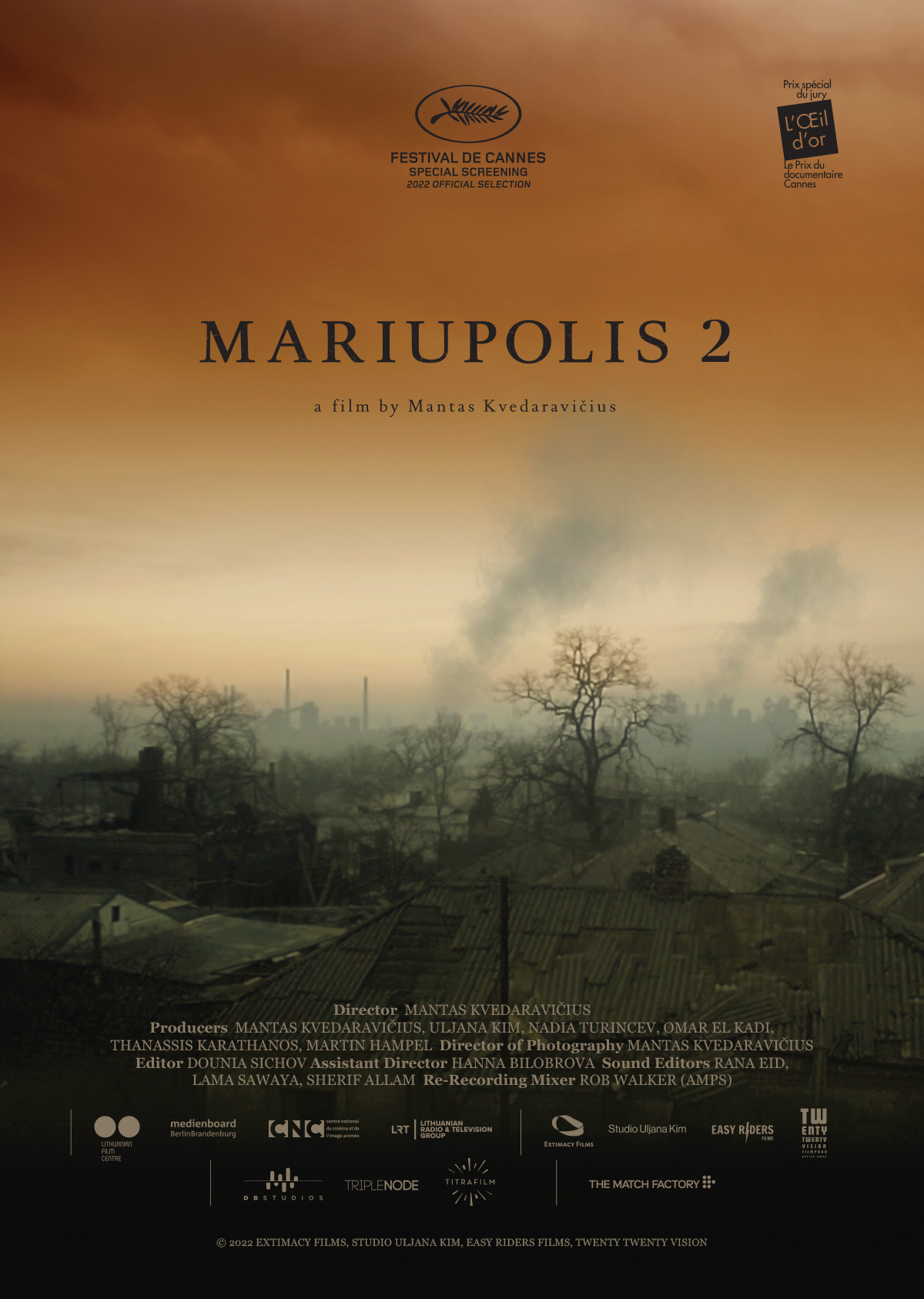On Monday, October 28, at 6 p.m., Brookens Auditorium at UIS hosted a powerful screening of ‘Mariupolis 2,’ a documentary that brings the harrowing realities of war-torn Mariupol, Ukraine, to light. Organized in collaboration with Blue/Yellow USA, the event drew students, faculty, and community members, offering them a unique opportunity to witness the resilience of Mariupol’s people through the lens of filmmaker Mantas Kvedaravičius and his co-director, Hanna Bilobrova. The screening was followed by an engaging discussion that allowed attendees to delve deeper into the film’s themes and the ongoing conflict in Ukraine.
UIS Student from Dnipro, Ukraine, Ignat Striletskyi spoke on the importance of the movie, “The movie for me personally is a representation of what my fellow Ukrainians are going through right now and what I was able to witnesses myself during the first days of invasion. This movie is indeed heartbreaking and sad to watch, however it sends a clear message to all people around the globe, that this war is not only against Ukraine, but against humanity and freedom.”
Mariupolis 2 is more than a documentary —it is a first-hand testimony to the horror, resilience, and bleakness that Lithuanian Mantas Kvedaravicius faced during his lifetime in the city. The film was completed by his wife, Hanna Bilobrova, after he was killed by Russian forces; the work constitutes a brave documentation of Mariupol’s last days before it fell under Russian occupation.
First shown at Cannes in 2022, where the film was recognized as best European documentary, Mariupolis 2 – with its apparent weight of human suffering – remains unflinching in its portrayal of war and, according to Bilobrova, is “not meant to entertain, but to reveal the truth of what is happening. We must remember, share, and ensure these stories are never forgotten.”
This film chronicled life in a Mariupol church to which a group of civilians retreated. Food and water supplies were running low; violence was never very far away. It invites the viewer, as Bilobrova intended, “to feel like being there.” People perform in every frame the most basic acts-preparing a meal or huddling for warmth-in an atmosphere of emptiness and menace. Streets lie empty, covered with remnants of lives abandoned. The result is both visual and emotional: the audience is taken into a setting that’s surrounded by dread and uncertainty.
Each scene is often presented as one or two long, uninterrupted sequences of people going about these simple routines, or as desolate cityscapes pockmarked by shelling and silence. These long takes give the audience time for processing and reflecting on each detail. Allowing these moments to linger reinforces the sense that every second in a war zone carries a weight all its own. The use of montage in this film runs against traditional narrative techniques; instead, it allows independent scenes to bear the emotional and thematic weight of the film.
While many critics praise the strength of meaning that derives from a film’s interconnections, Mariupolis 2 in works another way. Every moment stands strong in and of itself—every clip carrying meaning on its own, could stand alone as its own testament to suffering, resilience, or quiet desperation.
The rawness of every scene amplifies the tragedy in unfiltered ways to expose the inhumanity and brutality of this siege on Mariupol. The path that Bilobrova followed to complete this documentary was as brave as the work itself: after Kvedaravičius’s death, she put her own life in danger to retrieve both his body and footage and smuggle them across dangerous borders so his work could reach the world. That courageous act turned personal tragedy into a strong political and social message that would guarantee Mariupol’s story—and Kvedaravičius’s vision—would not be silenced.
Made possible by non-profit Blue/Yellow USA, the US release of this documentary has been generating conversations across American cities. These screenings, as it happened at UIS, often come with Q&A sessions where Bilobrova and Hanna Bilobrova co-director, Iryna Prudkova (Havrikova) executive producer, Valeriia Havrikova and Albina Lvutina Project Coordinator assistant share their insight and experiences, giving unique, sobering perspective to a conflict many attain only through news reports. This is a film that dares viewers to not just bear witness to war but also to remember life at its core.
Film producers during Q&A
In all, Mariupolis 2 is a hauntingly powerful work; the human cost of war is captured with such intimacy and urgency as only the people who lived through this can. It is not an easy watch, but it is an essential one. As Bilobrova said, this film “is not supposed to entertain,” and it does far more than that: it makes us witness, show empathy, and remember. Yet through Bilobrova, this film serves as another reminder of the inconceivable strength of such individuals and of the importance of sharing their stories.










